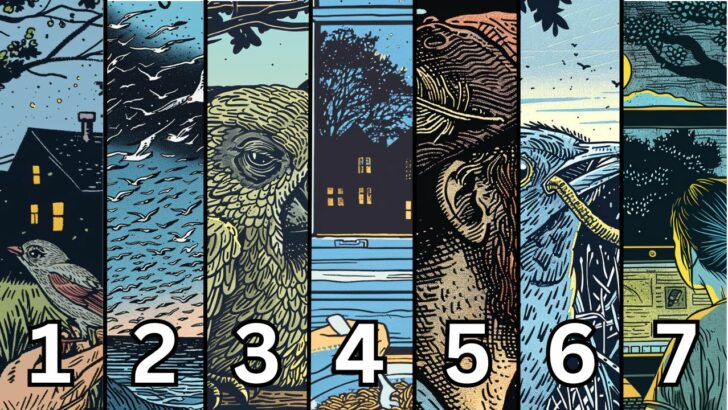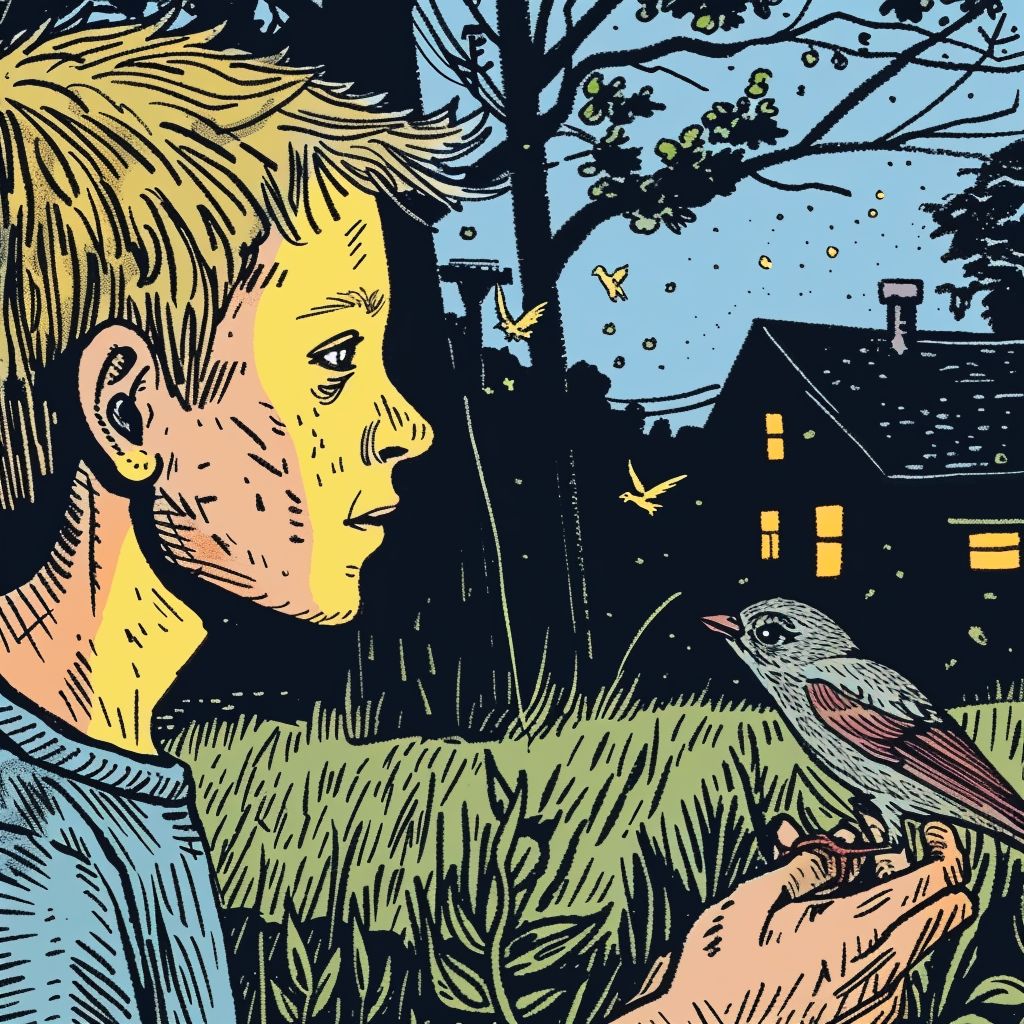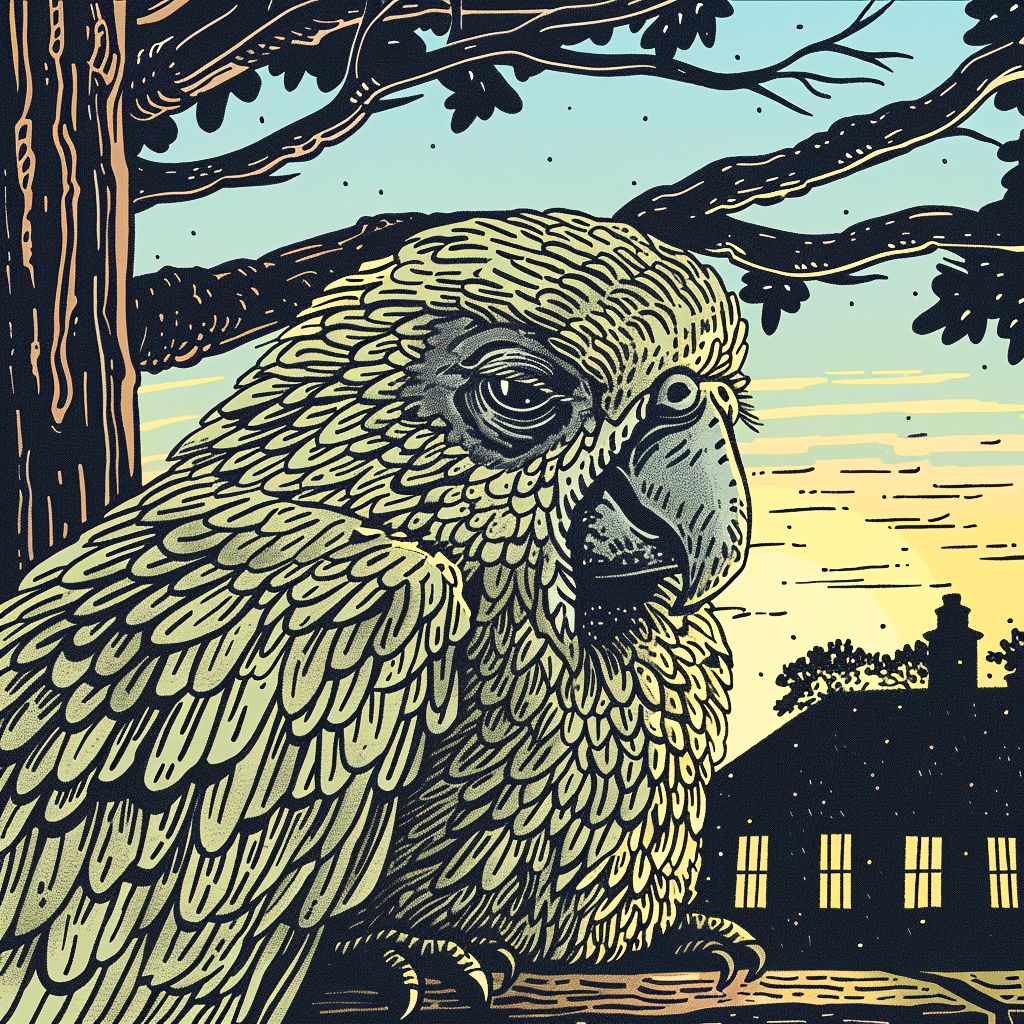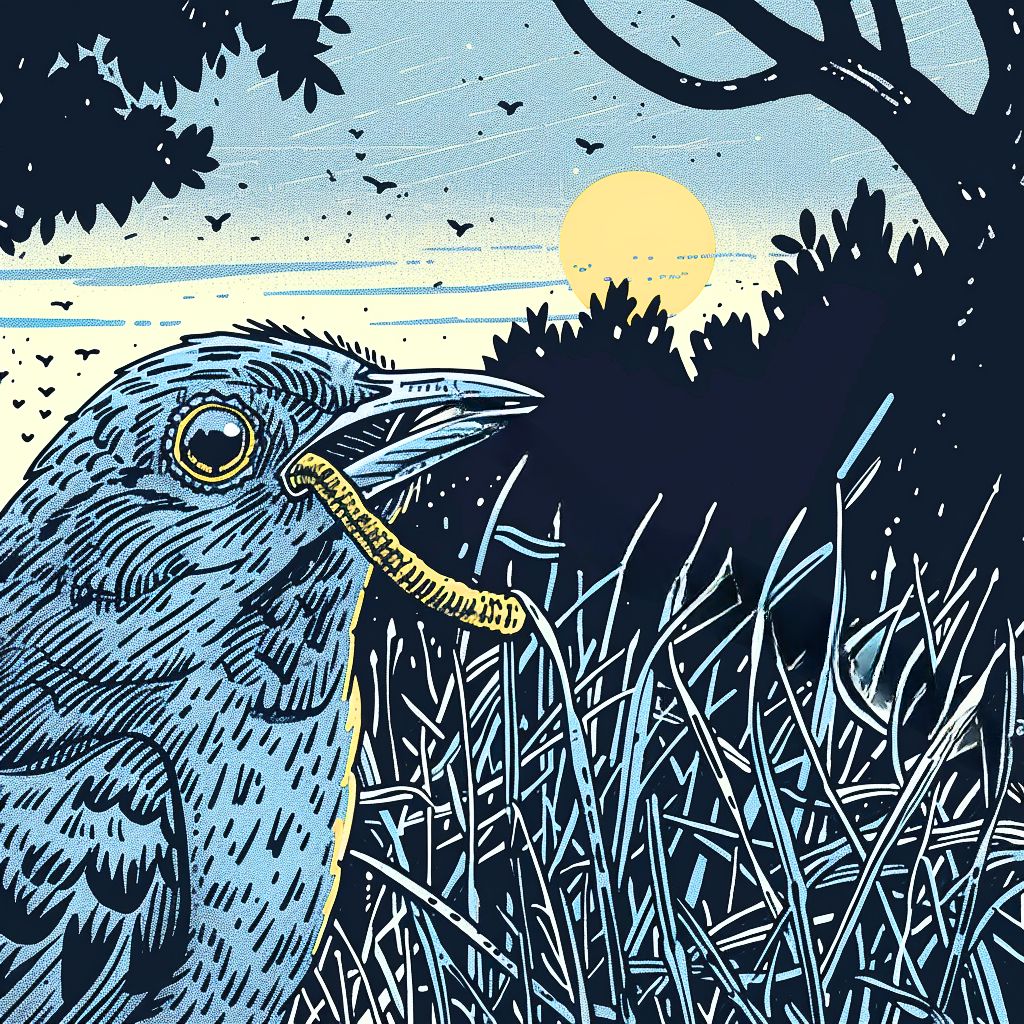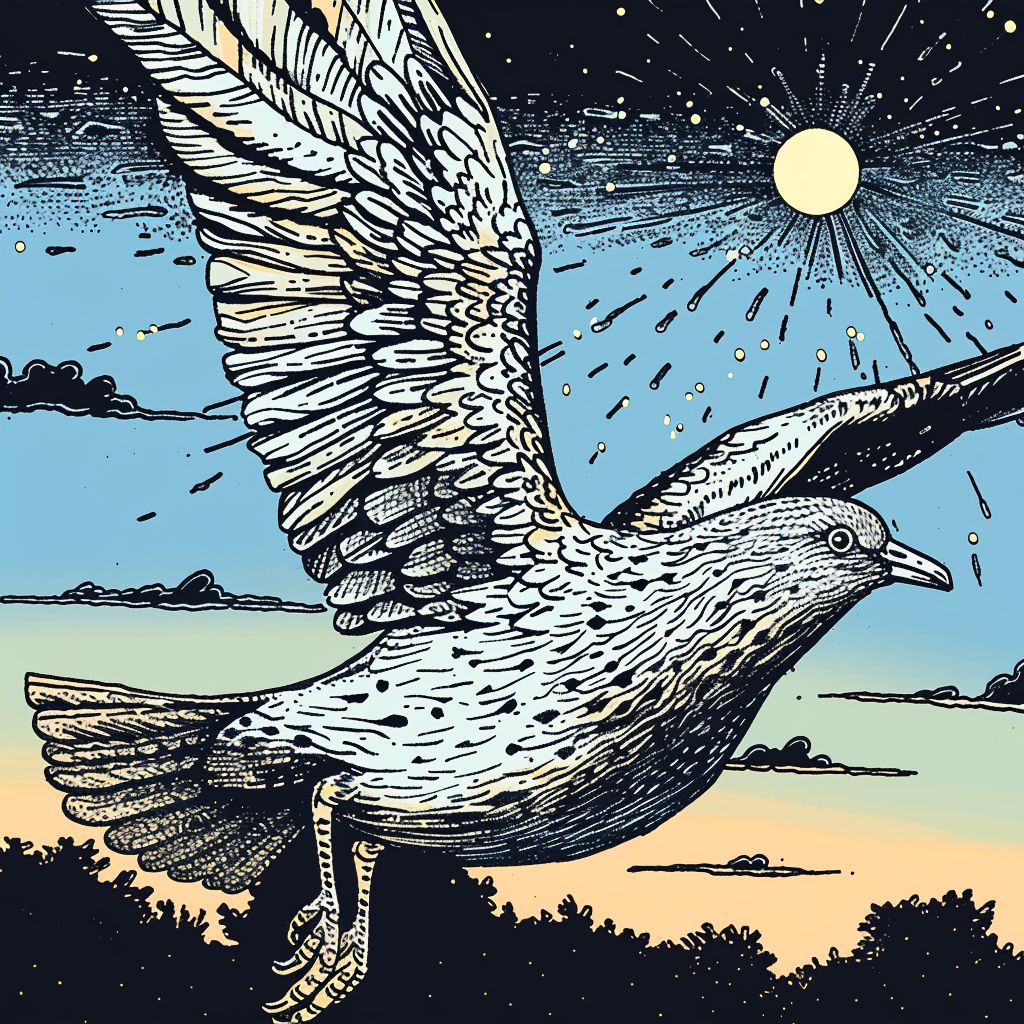With their grace in the sky and diverse behaviors, birds have woven their way into our language, leaving behind idioms filled with wisdom, humor, and observation.
From the freedom of the skies to the coziness of nests, bird idioms encapsulate the essence of human aspirations, emotions, and life’s myriad situations.
Birds inspire expressions that touch upon freedom, community, health, and achievement in their varied species and habits.
Here’s a collection of 7 bird idioms that illuminate these themes and offer insights into human behavior and our universal experiences.
1. A Bird in the Hand is Worth Two in the Bush
The idiom “A bird in the hand is worth two in the bush” highlights the wisdom of valuing what one already possesses over the allure of potentially greater but uncertain rewards.
It serves as a reminder of the risks associated with greed and the pursuit of uncertain opportunities, advocating for appreciation and contentment with the present.
This expression is often invoked in decision-making scenarios, where the choice between a certain benefit and the gamble for more is at play.
- Example 1: She decided to keep her stable job rather than venturing into a new business, adhering to the principle that a bird in the hand is worth two in the bush.
- Example 2: He sold his car at a reasonable offer instead of holding out for a higher price, realizing that a bird in the hand is worth two in the bush.
2. Birds of a Feather Flock Together
“Birds of a feather flock together” is an idiom that illustrates the natural tendency of individuals to gravitate towards those with similar characteristics or interests.
This saying underscores the comfort and affinity found in shared experiences and viewpoints, suggesting that people, much like birds, prefer the company of those who are alike in habits and preferences.
It often reflects on social dynamics, friendships, and the formation of communities based on common ground.
-
- Example 1: The members of the book club, all passionate about science fiction, proved that birds of a feather flock together.
- Example 2: Despite their diverse backgrounds, the volunteers shared a common dedication to the cause, showing that birds of a feather really do flock together.
3. Sick as a Parrot
Sick as a parrot expresses profound disappointment or disillusionment, much like the subdued state of a vibrant parrot when it is not feeling well.
This idiom vividly conveys the depth of someone’s unhappiness or regret over an unfortunate outcome or situation.
It’s particularly poignant in contexts where hopes were high, only to be dashed by reality, leaving one feeling downcast and disheartened.
-
- Example 1: He was sick as a parrot after his team lost the final match, a game they were favored to win.
- Example 2: Finding out her novel was rejected by the publisher left her sick as a parrot, questioning her writing skills.
4. Eat Like a Bird
Eat like a bird describes the habit of consuming very small amounts of food, drawing a parallel with the light eating patterns of birds.
This idiom is frequently used to comment on someone’s modest appetite, whether by choice or nature and can often be found in conversations about dietary habits or personal preferences at the dining table.
- Example 1: Even at the grand feast, she could only eat like a bird, picking at her plate.
- Example 2: To maintain his health, he began to eat like a bird, focusing on smaller, more nutritious meals.
5. Feather in One’s Cap
“Feather in one’s cap” symbolizes a notable achievement or honor, akin to the historical practice of adding a feather to one’s hat as a mark of accomplishment.
This idiom celebrates personal victories and the pride that comes with them, encouraging recognition and self-esteem.
It’s often used in contexts of professional success, academic achievements, or any personal milestone worth celebrating.
- Example 1: Securing the lead role in the play was a feather in her cap, highlighting her acting talent.
- Example 2: Completing the marathon, despite the challenges, was a true feather in his cap.
6. The Early Bird Catches the Worm
“The early bird catches the worm” advocates for the benefits of acting promptly and taking initiative.
Inspired by the morning habits of birds getting the first pick at food, this idiom is a motivational reminder that success often comes to those who start their endeavors without delay.
It emphasizes the advantages of being proactive and seizing opportunities as they arise.
- Example 1: She always arrived at work an hour early, a practice that paid off when she was the first to spot and resolve a major issue, truly embodying that the early bird catches the worm.
- Example 2: His habit of studying in the quiet early morning hours was why he excelled in his exams, proving the early bird catches the worm.
7. Night Owl
The idiom “Night owl” describes someone who is most active or productive during nighttime.
This idiom contrasts with “The early bird catches the worm,” highlighting the effectiveness and preference of working or creating under the cover of darkness.
It celebrates those who find their muse or peak energy levels when most of the world is asleep, acknowledging the diversity in human circadian rhythms and productivity patterns.
In the Sky of Language: Soaring with Bird Idioms
Bird idioms fly through our conversations, bringing imagery of freedom, companionship, disappointment, modesty, pride, initiative, and nocturnal energy.
They remind us of the lessons we can learn from our feathered friends, from the value of what we hold dear to the benefits of rising early or embracing the night.
Whether you’re navigating life’s highs and lows or seeking to express life’s victories and challenges, let these bird idioms lift your spirits and enrich your conversations with their timeless wisdom and beauty.

Hey fellow Linguaholics! It’s me, Marcel. I am the proud owner of linguaholic.com. Languages have always been my passion and I have studied Linguistics, Computational Linguistics and Sinology at the University of Zurich. It is my utmost pleasure to share with all of you guys what I know about languages and linguistics in general.

